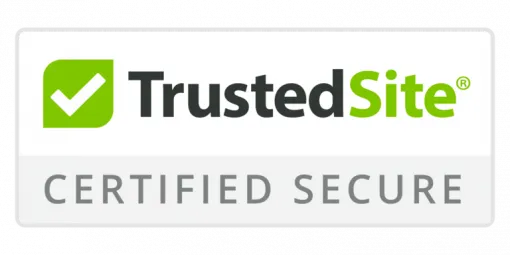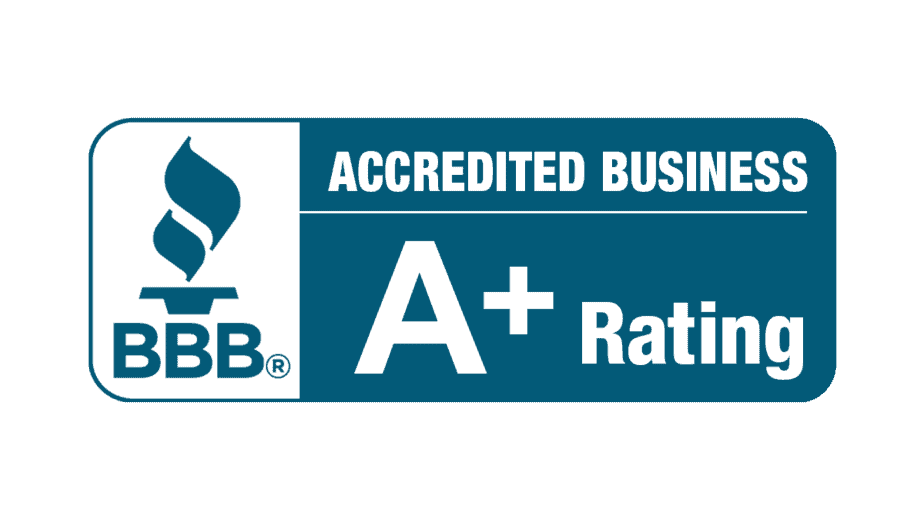Translating technical manuals for manufacturing companies involves converting critical documentation, such as user manuals and instruction guides, from one language to another while maintaining precision and accuracy.
To implement this side hustle, follow these key steps:
- Identify your niche: Focus on a specific industry or type of technical manual to translate, such as machinery, electronics, or automotive.
- Develop specialized terminology: Familiarize yourself with industry-specific vocabulary and terminology to ensure accurate translations.
- Understand cultural considerations: Consider the cultural context of the target audience and adapt translations accordingly to ensure usability and comprehension.
- Invest in translation tools: Utilize computer-assisted translation (CAT) software, terminology management tools, and other resources to streamline the translation process.
- Build a client base: Network with manufacturing companies, offer your services, and demonstrate your expertise in technical translation to secure clients.
- Deliver high-quality translations: Ensure accuracy, consistency, and regulatory compliance in your translations to maintain client satisfaction and build your reputation.
- Continuously improve: Stay up-to-date with industry developments, best practices, and new technologies to enhance your skills and stay competitive in the market.
By following these steps, you can establish a successful side hustle in translating technical manuals for manufacturing companies.
Challenges in Technical Manual Translation
Translating technical manuals as a side hustle presents unique challenges, particularly in navigating the intricate balance between technical terminology, cultural differences, and linguistic nuances. These complexities can significantly affect the accuracy and effectiveness of the translated content. A major hurdle is dealing with cultural nuances, as technical manuals frequently include culturally-specific references, idioms, and expressions that do not translate directly.
To overcome this, freelance translators must utilize localization strategies that consider the cultural context of their target audience. This involves adapting content to comply with local standards, regulations, and preferences. Modifying technical terminology, units of measurement, and formatting to align with regional norms is crucial.
Freelance translators must also be aware of cultural differences in communication styles, such as levels of formality and directness, to ensure the translated content is clear and concise. By acknowledging and addressing these cultural nuances, freelance translators can produce high-quality technical manuals that cater to diverse audiences worldwide, ultimately building a successful side hustle.
Importance of Accurate Technical Translation
Accurate technical translation of manuals is a critical task, as mistranslation or misinterpretation of key information can lead to significant consequences.
In addition to posing serious risks and safety hazards, inaccurate technical translations can result in decreased customer satisfaction and damage a company's global reputation.
It is, consequently, imperative that organizations prioritize translating their technical content accurately in order to minimize errors and optimize product safety and utility.
Preventing Errors and Risks
As a side hustler, inaccuracies in translating technical documents, marketing materials, or client communications can harm your reputation and earnings. To minimize such risks, it's crucial to adopt effective error mitigation strategies and risk assessment methods. This includes utilizing specialized translation software, collaborating with experienced translators familiar with your niche terminology, and conducting thorough reviews and proofreading.
Effective risk assessment methods involve identifying potential translation errors, evaluating their likelihood and impact, and implementing measures to mitigate or eliminate them. This may include developing glossaries and style guides, establishing clear communication channels with translators or clients, and monitoring translation quality through metrics and feedback.
Industry-Specific Terminology Matters
As a side hustler, understanding industry-specific terminology is vital for accurate and high-quality delivery of services to clients. Technical translations, in particular, require a deep grasp of specialized vocabulary to avoid miscommunications that could harm your reputation or result in financial losses. The precision of technical translations relies heavily on the correct usage of industry-specific terms.
To maintain consistency and quality in your work, standardizing your terminology is essential. Creating a uniform glossary of industry-specific terms streamlines your workflow, reduces errors, and allows for seamless communication with clients.
Developing and referring to a comprehensive glossary empowers you to produce contextually accurate and authoritative work. By mastering industry-specific vocabulary, you can ensure the integrity of your work, comply with relevant norms and standards, and build trust with your clients.
Effective terminology management is, therefore, crucial for delivering high-quality services and maintaining a competitive edge in the side hustle market.
Ensuring Regulatory Compliance
As a side hustler providing technical translation services, prioritizing compliance with regulatory requirements is crucial to avoid severe consequences, including reputational damage, financial penalties, and loss of business.
Inaccurate technical translations can lead to non-compliance, exposing you and your clients to risks and liabilities.
Familiarity with regulatory frameworks and standards, such as ISO 9001, CE marking, and OSHA regulations, is vital to mitigate these risks.
Understanding compliance audits and required documentation is also essential to demonstrate compliance.
Technical Translation Expertise Requirements
Effective technical translation of manuals requires a unique convergence of language and technical skills, as well as industry-specific terminology knowledge.
To produce high-quality translations, technical translators must possess a strong foundation in both the source and target languages, as well as a thorough understanding of the technical subject matter.
This expertise enables them to accurately convey complex technical information, ensuring that the translated manual is as clear and effective as the original.
Language and Technical Skills
As a side hustler offering translation services for technical manuals, it's essential to possess a unique combination of linguistic expertise and technical knowledge. This enables you to accurately convey complex concepts and terminology to diverse audiences.
A strong foundation in language proficiency is crucial, as you need to fully comprehend the source text and convey its meaning accurately in the target language. Proficiency in multiple languages is often required, including languages with complex writing systems or nuanced grammar.
In addition to linguistic expertise, you must also develop technical writing skills to effectively convey complex information in a clear, concise manner. This requires a solid understanding of technical writing principles, including formatting, syntax, and style.
Familiarity with common technical writing tools and software, such as MadCap Flare or Adobe FrameMaker, is also necessary. By combining language proficiency with technical writing expertise, you can produce high-quality translations of technical manuals that meet the needs of diverse audiences.
This helps companies communicate complex information accurately and ensures safe and efficient operation of equipment and systems.
Industry-Specific Terminology Knowledge
Specialized knowledge of side hustle terminology is a vital component of successfully navigating the gig economy, enabling individuals to accurately convey their services and value proposition to potential clients.
To achieve this level of expertise, side hustlers must have access to thorough resources and context-driven guidelines that reflect the latest trends and best practices in their respective fields. These resources allow side hustlers to stay up-to-date with industry-specific terminology, jargon, and abbreviations, ensuring that their marketing efforts and client communication are accurate, consistent, and relevant to their target audience.
Effective use of online resources and context-driven guidelines also enables side hustlers to identify and address potential terminology-related issues, such as ambiguities, inconsistencies, and cultural or regional variations.
By leveraging these tools and resources, side hustlers can deliver high-quality services that meet the needs and expectations of their clients, ultimately supporting their business objectives and financial goals.
In the gig economy, accurate and consistent terminology is essential for building a strong professional brand, attracting clients, and driving business growth.
Industry-Specific Translation Considerations
As a side hustler offering translation services, it's essential to recognize that the nuances of technical translation vary significantly across industries.
For instance, sectors like aerospace, automotive, and life sciences have unique regulatory requirements, terminology, and cultural norms that must be considered when translating technical manuals. When working with manufacturing companies, adapting content to accommodate local customs, preferences, and values is crucial for effective communication and regional regulation compliance.
Furthermore, localization strategies play a vital role in successful technical translation. Customizing content, layout, and graphics to meet the specific needs of the target market ensures that technical manuals are user-friendly, accurate, and culturally sensitive.
By employing effective localization strategies, side hustlers can help manufacturing companies expand their global reach, increase customer satisfaction, and improve their bottom line.
Industry-specific translation considerations are critical for side hustlers looking to specialize in technical translation services for manufacturing companies and establish a strong reputation in the industry.
Role of Terminology Management
Effective terminology management is essential for side hustlers offering translation services, as inconsistent terminology can lead to misunderstandings, errors, and compromised client satisfaction. Developing a comprehensive glossary of terms and definitions is vital for maintaining consistency across all translation projects.
To achieve terminology consistency, side hustlers should establish clear guidelines and protocols for terminology management, collaborating with language experts to develop and maintain a centralized terminology database.
| Terminology Management Benefits | Consequences of Inconsistent Terminology |
|---|---|
| Enhances client satisfaction and loyalty | Compromises client satisfaction and loyalty |
| Reduces translation errors and improves efficiency | Increases translation errors and reduces efficiency |
| Boosts professional reputation and credibility | Damages professional reputation and credibility |
| Improves communication and client relationships | Impedes communication and client relationships |
Ensuring Regulatory Compliance
Side hustlers offering translation services must prioritize regulatory compliance to mitigate risks associated with non-compliance and ensure their translations meet industry standards. As a side hustle, ensuring compliance is crucial to protecting your business and reputation. Familiarize yourself with relevant regulatory frameworks, such as those related to data protection, intellectual property, and consumer rights.
Conducting compliance audits can also help verify that your translations meet regulatory requirements. Review your translations to confirm they conform to relevant laws, regulations, and industry standards. Providing accurate and complete translations can help you pass compliance audits and build trust with clients.
Failure to comply can result in serious consequences, including fines and damage to your reputation. By prioritizing regulatory compliance, you can avoid these risks and establish credibility as a translation service provider.
Benefits of Outsourcing Translation
Outsourcing translation services can be a lucrative side hustle for freelancers and small business owners. By offering specialized translation services, individuals can tap into the growing demand for multilingual content and provide high-quality translations to clients.
| Benefits of Offering Translation Services | Description | Advantages |
|---|---|---|
| Additional Income | Earn extra money by offering translation services | Supplemental income, increased financial stability |
| Flexibility | Ability to choose projects and clients | Autonomy, work-life balance |
| Opportunity to Develop New Skills | Chance to develop industry expertise and language skills | Enhanced career prospects, personal growth |
| Professional Network Expansion | Opportunity to connect with clients and industry professionals | Increased networking opportunities, potential for new business ventures |
| Personal Satisfaction | Chance to provide high-quality translations and help businesses communicate effectively | Sense of fulfillment, pride in one's work |
Quality Control and Assurance Measures
Implementing rigorous quality control and assurance measures is essential for freelancers offering translation services as a side hustle to guarantee the accuracy, consistency, and cultural relevance of translated technical manuals for clients.
A thorough quality assessment process involves evaluating the qualifications and expertise of freelancers, editors, and reviewers to confirm they meet industry standards. Additionally, leveraging advanced translation tools, such as terminology management systems and translation memory software, enables freelancers to maintain consistency and accuracy throughout the translation process.
These tools also facilitate the detection of errors and inconsistencies, allowing for prompt corrective action. Moreover, regular quality checks and audits verify that translated content meets the required standards.
Best Practices for Translation Collaboration
Effective side hustling in translation collaboration requires freelancers to establish clear communication channels and define project roles, guaranteeing seamless interaction among team members, including translators, editors, and reviewers.
To achieve this, it is essential to implement collaborative tools that facilitate real-time communication, file sharing, and task management. Utilizing platforms such as Slack, Trello, or Asana enables team members to stay informed, assign tasks, and track progress, even in a part-time capacity.
In addition to collaborative tools, establishing effective communication strategies is vital for part-time translation work. This includes setting clear expectations, defining terminology, and agreeing on quality standards. Regular virtual meetings and progress updates also help to ascertain that all stakeholders are aligned and working towards a common goal.
Moreover, establishing a centralized glossary and style guide guarantees consistency across the translated content, allowing side hustlers to deliver high-quality translations that meet the needs of clients.
Conclusion
Effective translation of technical manuals for manufacturing companies demands meticulous attention to detail, precision in terminology, and cultural awareness.
Research confirms that accurate translations notably enhance user safety, regulatory compliance, and customer satisfaction.
Furthermore, the implementation of thorough glossaries, collaboration with experienced translators, and rigorous quality control measures mitigate risks and guarantee high-quality documentation for diverse global audiences.
Technical translation expertise is consequently paramount in bridging the gap between language and technology.

















































0
View comments